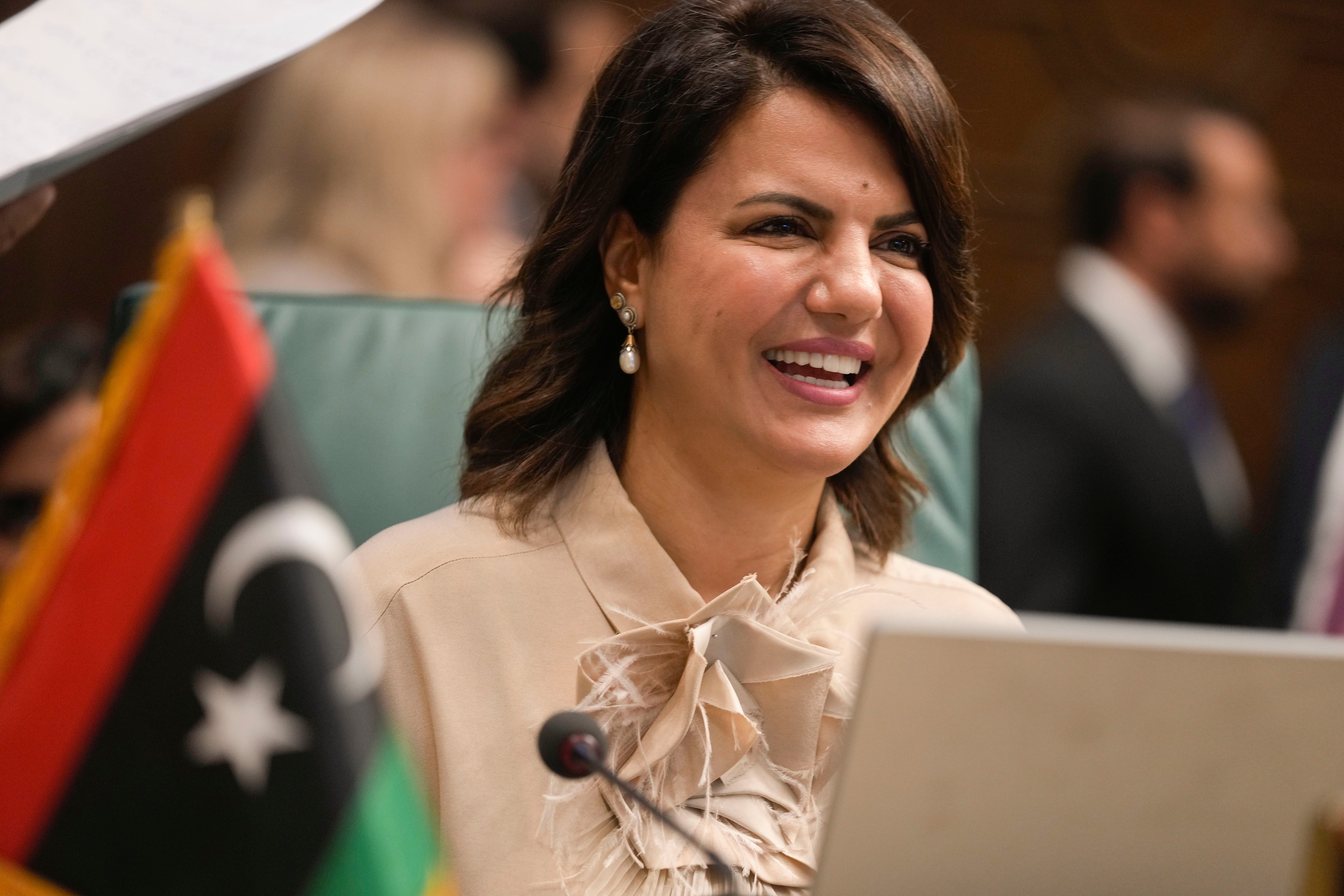Egypt exits Arab League meeting, opposing Libyan minister
Egypt’s foreign minister has exited an Arab League session chaired by the chief diplomat of one of Libya’s two rival governments, in an apparent protest against her administration

Egypt’s foreign minister withdrew Tuesday from an Arab League session chaired by the chief diplomat of one of Libya’s two rival governments. The move was an apparent protest against her representing Libya at the pan-Arab summit. Egypt supports her administration's rival.
The seats of the Egyptian delegation were seen empty as Najla Mangoush, the foreign minister of the Tripoli-based administration, was addressing a meeting for the Arab foreign ministers in Cairo.
Egyptian Foreign Minister Sameh Shukry left the meeting room in the Arab League headquarters when Mangoush took her seat to chair the meeting.
Egypt has argued the mandate of the Tripoli-based government of Prime Minister Abdel Hamid Dbeibah has ended after Libya’s east-based parliament appointed a rival premier earlier this year.
Libya's current political stalemate grew out of the failure to hold elections in December and Dbeibah's refusal to step down. He led the transitional government. In response, the country’s east-based parliament appointed a rival prime minister, Fathy Bashagha, who has for months sought to install his government in Tripoli.
Earlier this month, the parliament that appointed him cancelled its session after it said members were prevented from leaving the capital, Tripoli, which is controlled by its rivals.
The divisions have contributed to fresh fighting in the war-torn country. Deadly clashes between militias backed by its two rival administrations killed 23 people last month in Libya’s capital, portending a return to violence amid a long political stalemate.
The escalation threatens to shatter the relative calm Libya has enjoyed for most of the past two years. The oil-rich nation plunged into chaos following a NATO-backed uprising that toppled and killed longtime autocrat Moammar Gadhafi in 2011.
Bookmark popover
Removed from bookmarks